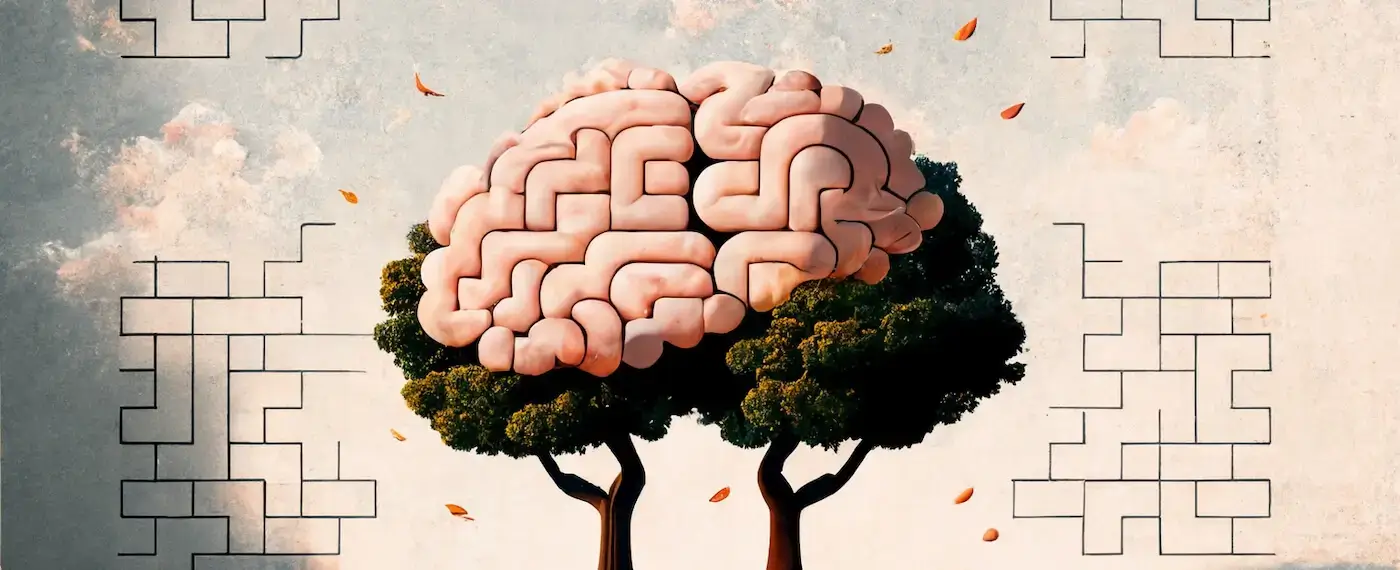
Context and State-Dependent Memory: Use It For Strong Recall
Table of Contents
One way to use context and state-dependent memory for stronger recall is to actively try to associate the information an individual is trying to remember with the context or state in which you will need to recall it. For example, if you are trying to remember a phone number, try to associate it with a specific location or a specific person. Sensual, physical, and emotional experiences shape our strongest memories – different mechanisms of encoding data can be grouped into multiple categories, such as state-dependent memory or context recalling.
When recalling any information, a person can try to recreate the same context or state experienced when they first learned it. This can help to trigger memory and make it easier to recall the information. Using mood, state, or context-dependent cues can make a difference in how you prepare for exams and encode complex data sets.
To use context and state-dependent memory for stronger recall, you can:
Associate the information you want to remember with the context or state in which you will need to recall it. For example, if you are trying to remember a historical fact, try to relate it to an event that happened in a specific place or time.
Try to recreate the same context or state when you need to recall the information. For example, if you learned a new word while sitting in a particular chair, try to recall the word while sitting in that chair again.
Use mnemonic devices to encode information in a way that is more memorable. Mnemonics are memory aids that use imagination, association, and organization to make information more memorable.
Practice active recall, which means trying to retrieve information from memory without cues or prompts.
Use spaced repetition, which means reviewing information at increasing intervals to help retain it.
Chunking, which is the process of breaking down complex information into smaller, more manageable chunks, can also help to improve recall.
Finally, try to make the information meaningful and interesting, so that it is more likely to be retained in memory.
Data recalling is commonly better if given identical rather than different contextual or state cues. An individual in a calm and relaxed mood is more likely to retrieve information learned in the same ambiance, while an overly excited state will not create positive cues. For exam preparation, it is pivotal to gain the skill of using state or context-dependent cues mentally. These can help to create triggers that assist in pulling out information from the mind recesses.

What Is Context Dependent Memory?
Context-dependent type of memory is where our mind tends to retrieve memories that correspond with the physical settings or the context that we are in. Let’s say you had your first dance with a classmate in a high school gym or a hall. This gym or hall is the place or the context in which that specific long-lived memory was encoded. Then, at your school reunion, you walk back into the space where was your first dance, and the physical settings and interior features help trigger the retrieval of that original memory. Keep in mind that just because some episodes were formed in a specific location or area, it doesn’t mean that if visiting that location again, these memory episodes will be recalled. You could remember that episode and return to this moment mentally with the help of visualization after decades when sitting on your couch at home. But this is not an example of memories that are recognized as context-dependent because they weren’t triggered by the physical surroundings.
Also, some of the mnemonics, for example, the mind palace Sherlock technique, rely upon the skills of recalling context-dependent data. Being able to reproduce the contexts virtually, it is possible to design a system of memories for their prolonged storage in mind with the help of the memory palace. It will promote learning and enhance academic experiences. Here are some examples of context-dependent memory:
- Remembering a phone number you just learned while you are on the phone
- Remembering directions you just learned while you are driving
- Remembering a conversation you just had while you are in the same room as the person you talked to
- Remembering a smell you just learned while you are at the same place where you smelled it before
State-Dependent Memory Simple Example
As for state-dependent memory, it is a kind of episode in our memory storage that we are able to recall better if we are in the same physiological state of mind and consciousness (e.g. asleep, awake, tired, extremely excited, or drunk). So if we reproduce a similar state as when the episode was originally processed and formed, this episode will be brought to our memory. However, there is no specific parameter for triggering such memories. It doesn’t necessarily mean that whenever being in the same state of mind or consciousness, your memory will work the same way.
Let’s take a look at a state-dependent memory example. Imagine that, heaven forbid, one night, someone is watching TV at home. This person is exhausted after a hard day at work and is about to fall asleep when suddenly the fire alarm goes off because of the smoke in the house. Now, this episode will definitely be glued to the mind and kept there for years. Obviously, over time, a stressful situation begins to fade from memory. But now, imagine that, years later, this individual is reading a book or magazine in bed and is really tired once again. The person is about to fall asleep when suddenly awakened by the memory of the alarm sound and smoke or fire in the house. It shows that if a particular memory was created when your mind was in a drowsy state, this memory would be recalled down the line while you are also in a sleepy state.
State-Dependent Memory In Everyday Professional Life
State-dependent memory refers to the phenomenon in which recall of information is better when the individual is in the same physiological or emotional state as when the information was originally learned. As a field professional, you may encounter a variety of situations where state-dependent memory can come into play.
- For example, if you are a first responder, you may need to remember important procedures or protocols while under stress. If you practice these procedures calmly, it may be more difficult to recall them in a high-stress situation.
- If you are a construction worker, you may need to remember the steps for operating certain equipment or tools. If you learn these steps while you are feeling well-rested and alert, you may find it more difficult to recall them when you are tired or fatigued.
- If you are a pilot, you may need to recall emergency procedures during different phases of flight, like takeoff, cruising, and landing. If you practice these procedures while in the same phase of flight, you may be more likely to recall them if an emergency occurs.
- If you are a diver, you may need to remember the procedures for safely entering and exiting the water or the location of a specific dive site. If you learn these procedures while you are in the water, you may be more likely to recall them when you are in the water again.
- By being aware of state-dependent memory, you can plan your training and practice sessions to take into account the different physiological and emotional states in which you may need to recall the information; it can help you to be more prepared for different situations in your profession.

Stress Affects Memory
When looking at which part of the brain is responsible for memory and the path an impulse takes before becoming a memory; it will be clear that the over-secretion of the stress hormone affects memorization. As for short-lived memories, crisis situations provoke our brains to see some details more vividly. For example, when you get into an accident, it may happen that you encode some moments in a highly detailed manner. The thing is that, sometimes, stress alerts the brain that particular details are worth remembering. However, it is mostly about the personal emotional spectrum. A great example of when the body remembers a traumatic cause is when something like a car accident occurs – the next time a person is in a car, they might be many times extra careful or even scared to drive. During a traumatic event, the body’s stress response is activated, releasing adrenaline and other hormones that can cause the brain to focus on and remember the event’s details more vividly. This is known as “traumatic memory,” and it can make it difficult for individuals to move past the event and healthily process their emotions.
Stress ~
~ activates the release of stress hormones such as cortisol and adrenaline, which can have a negative impact on memory by disrupting the processes of consolidation and recall.
~ can damage the hippocampus, a key brain region for memory formation and recall, by reducing the number of new neurons that are generated in this area.
~ can also cause inflammation in the brain, further damaging memory-related structures and disrupting the communication between brain cells necessary for memory formation.
~ affects attention and focus, making it more difficult to encode new information into memory and retrieve previously learned information.
~ interferes with the ability to engage in effective mnemonic strategies, such as elaborative rehearsal, which can make it more difficult to remember information.
~ can also affect the emotional component of memory, making it difficult to remember information that is associated with a stressful event.
~ leads to sleep disturbance, which can negatively affect memory consolidation and recall.
~ influences the balance between neurotransmitters, the chemical messengers that transmit the signals between the brain cells, and disrupt the communication that is necessary for memory.
As for context or state-dependent memory, when stressed, individuals have a more challenging period shaping the long-term type of memories that must be recalled later. The thing is that being under constant stress means that one is distracted and has a perpetual struggle with absorbing fresh knowledge. To enhance your thought or physical response to your surroundings and get rid of episodes when you don’t remember, for example, where you put your keys, you must learn to deal with stress first.
What You Need to Know About Context-Dependent Learning
Both context-dependent and state-dependent learning can assist in processing and remembering more information. It can be practical during exam preparation. For memory consolidation, students can also incorporate some mental tricks, adjust their lifestyle, or practice context and state-dependent encoding to avoid blips of memory loss or the episodes when important data just evades from the mind.
First: study in a variety of places
One of the powerful performance-improvement tactics is to be focused on the location where you are studying. Launch extra senses and associate the unique feelings you are experiencing at the moment with the new information. It consolidates memorization. You can choose the library, your room, or even a park to study any portion of the academic material. When researching, reading, or mentally scanning answers to exam questions, pay attention to some distinctive features surrounding you. Think of the lighting or temperature in the room or its size and analyze your sensations. By retrieving these sensations during exams, you will probably be capable of recalling academic concepts and facts more efficiently. Memories created through state or context-dependent data processing may be a key to the issue of how to remember something you forgot.
Second: self-knowledge
Total control of your psychological states and physical environments gives memorization freedom. It will help to keep emotions aligned with your mental goals, so no extra worries or anxiety will affect memorization or make you uncomfortable during exams. Another valuable tip regarding state-dependent learning is simply figuring out what your weaknesses and strengths in a given state of mind are. There is ample evidence that knowing more about yourself, how your experiences are formed, and what things are stimulative specifically for your mind is good for your memory.
Let’s take a simple example of brain stimulation with the help of coffee. Using too much caffeine might not be a very good idea for some individuals. One might become jittery, and the mind won’t be able to enter relaxation mode. It means that the intake of coffee must be smartly controlled to avoid overdosing. In an overexcited state of mind, it would be impossible to study.
Third: mnemonic devices
The necessary state-dependent cues on the virtual mind map can help easily access and recall the memories embedded in the mnemonic system. Remember that emotional associations contribute to better memory reproduction. Control the moment when you absorb a piece of data. When creating a virtual route for placing information there, try to understand your feelings, attitudes, and perception. Let’s imagine you want to memorize a list of products you need to buy in the shop with the help of a mind map. Let it be celery. So as you place celery in your memory palace, think about your perception of celery at the moment, how you feel about this plant, and whether you like or hate it. Conscious encoding leads to prompt and fail-free recalling.
Fourth: sleep well
Memorization power and sleep are inextricably linked. Getting enough rest after learning consolidates gained data into memory. A healthy sleep routine seems to present optimal conditions for knowledge structuring.
Fifth: use brain exercises
To bypass the entrapment of rote learning, make sure that your learning experience is diversified. The new cognitive activities and brain exercises encourage you to seek valid solutions to your current challenges and launch different thought patterns. It will definitely grow your appetite for greater achievements. Thus, the assumption that you have to do the same actions over and over again while training your brain for cognitive function improvement is a myth. Instead of doing the same thing, what you need to do is new and unique stuff to awaken your reasoning.

Diet Diet, Try It!
As a treat, we put together a food diet choice that promotes a healthy memory and flexible mind resulting in a context-dependent learning improvement. Certain foods have been shown to have specific benefits for cognitive function and context-dependent learning ability. Here are a few examples of foods that you may want to include in your diet to promote better context-dependent learning:
Berries, particularly blueberries, have been shown to have a beneficial effect on memory and cognitive function due to their high levels of antioxidants and flavonoids.
Fish, especially those rich in omega-3 fatty acids, such as salmon, tuna, and sardines, have been found to affect cognitive function, including memory positively.
Nuts and seeds, such as walnuts, almonds, and flaxseeds, are also rich in omega-3s and other beneficial nutrients, such as vitamin E and magnesium that can support cognitive function.
Whole grains, such as quinoa, oats, and brown rice, provide a good source of carbohydrates and B vitamins, which can help to support energy levels and cognitive function.
Leafy green vegetables, such as spinach, kale, and broccoli, are rich in antioxidants, vitamins, and minerals that can support cognitive function and memory.
Avocados are rich in monounsaturated fats, which can help to support brain health and cognitive function, as well as potassium, which can help to support cardiovascular health.
It’s important to note that this is not an exhaustive list, and a balanced diet with a variety of food groups is important. Additionally, it’s important to consult with a medical professional or a registered dietitian to ensure that your diet is appropriate for your unique needs and health status.
5 Quick-and-Easy to make Breakfasts that Promote Great Memory Recall
As an extra-extra treat, here are 5 quick-and-easy (magical) to make vegetarian breakfast options that can promote better context-dependent learning ability:
Chia Seed Pudding: Mix together chia seeds, almond milk, honey, and vanilla extract and let sit in the refrigerator overnight. In the morning, top with mixed berries and chopped nuts.
Yogurt Parfait: Layer Greek yogurt with mixed berries and granola in a jar or bowl.
Avocado Toast: Mash avocado on whole grain toast and top with a fried egg or scrambled eggs.
Smoothie Bowl: Blend frozen berries, banana, spinach, and almond milk, and pour into a bowl. Top with chopped nuts, seeds, and a drizzle of honey.
Oatmeal: Cook oatmeal with milk or water and top with mixed berries, chopped nuts, and a drizzle of honey.
We are rooting for you and your memory recall abilities, and remember; life is all memory but the present moment.
FAQ
What’s an example of reasoning?
There are multiple types of reasoning, and the mental output depends on what kind of reason was activated. For instance, it can be cause-and-effect reasoning. It encompasses asserting or denying that one thing causes another, producing some effects.
What is the definition of reasoning?
The ability to arrive at sound and well-reasoned conclusions or inferences through applying logical and analytical thinking and utilizing innate cognitive faculties constitute a key cognitive function. This process is of paramount importance and is intricately linked to other mental processes, such as memory retention and recall.
What is the importance of reasoning skills?
Reasoning is not only about using one’s mind and cognitive capacity to logically consider, assume, research, or reason about something. It is also about self-awareness and the ability to look inward to explore and understand the self’s feelings, choices, habits, and thoughts. The main motive of powerful reasoning is to make a valid conclusion, without which it will be hard to make the right decisions.